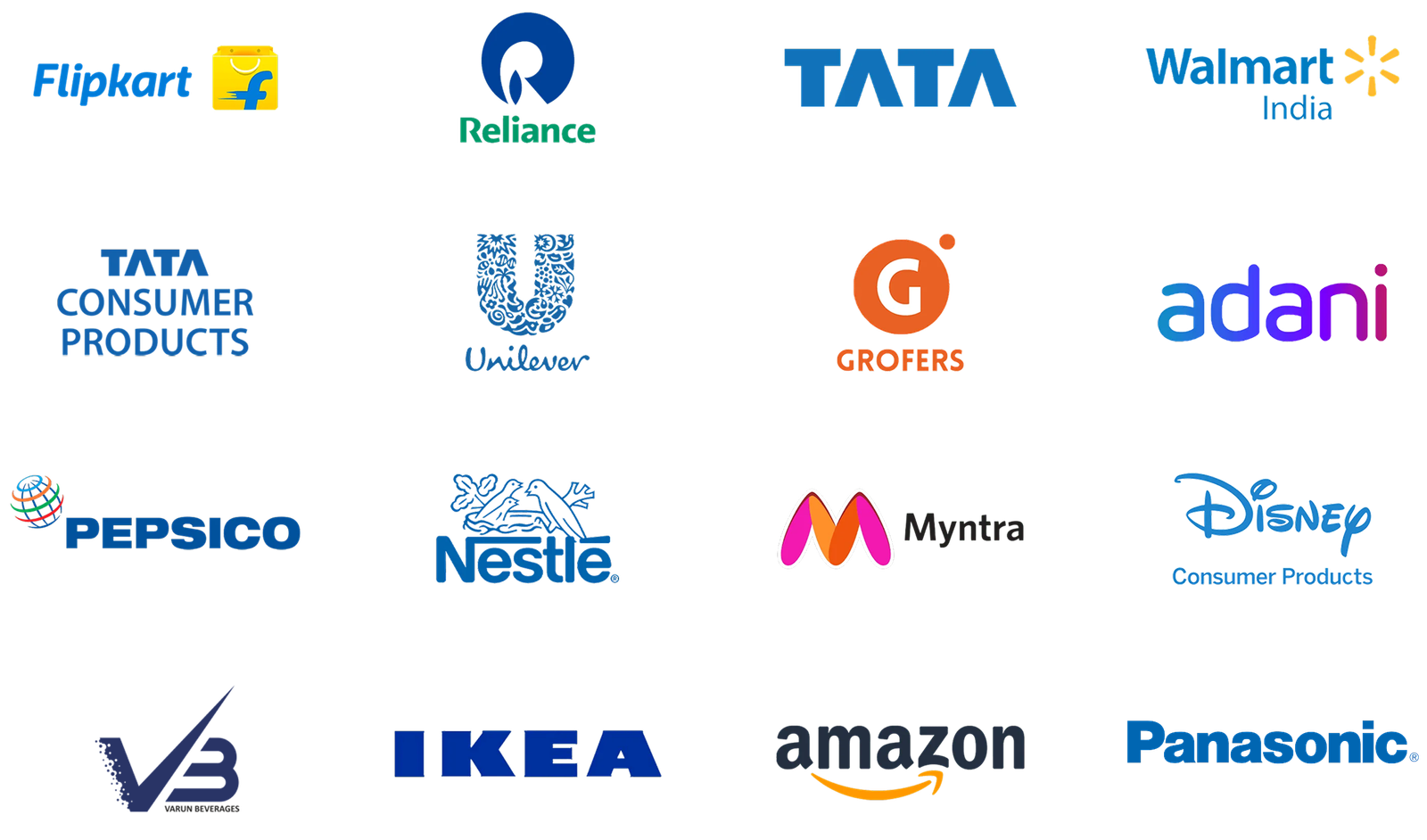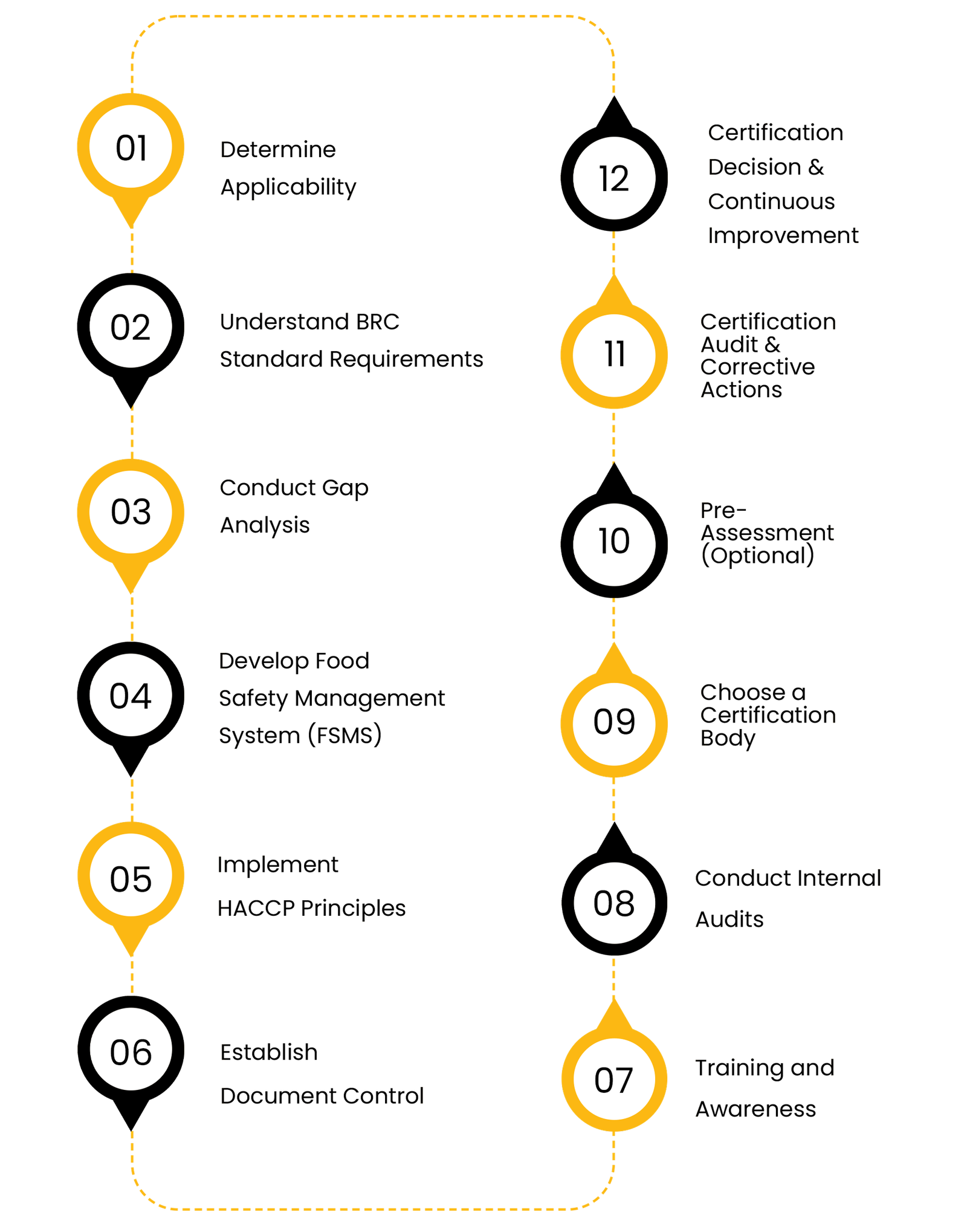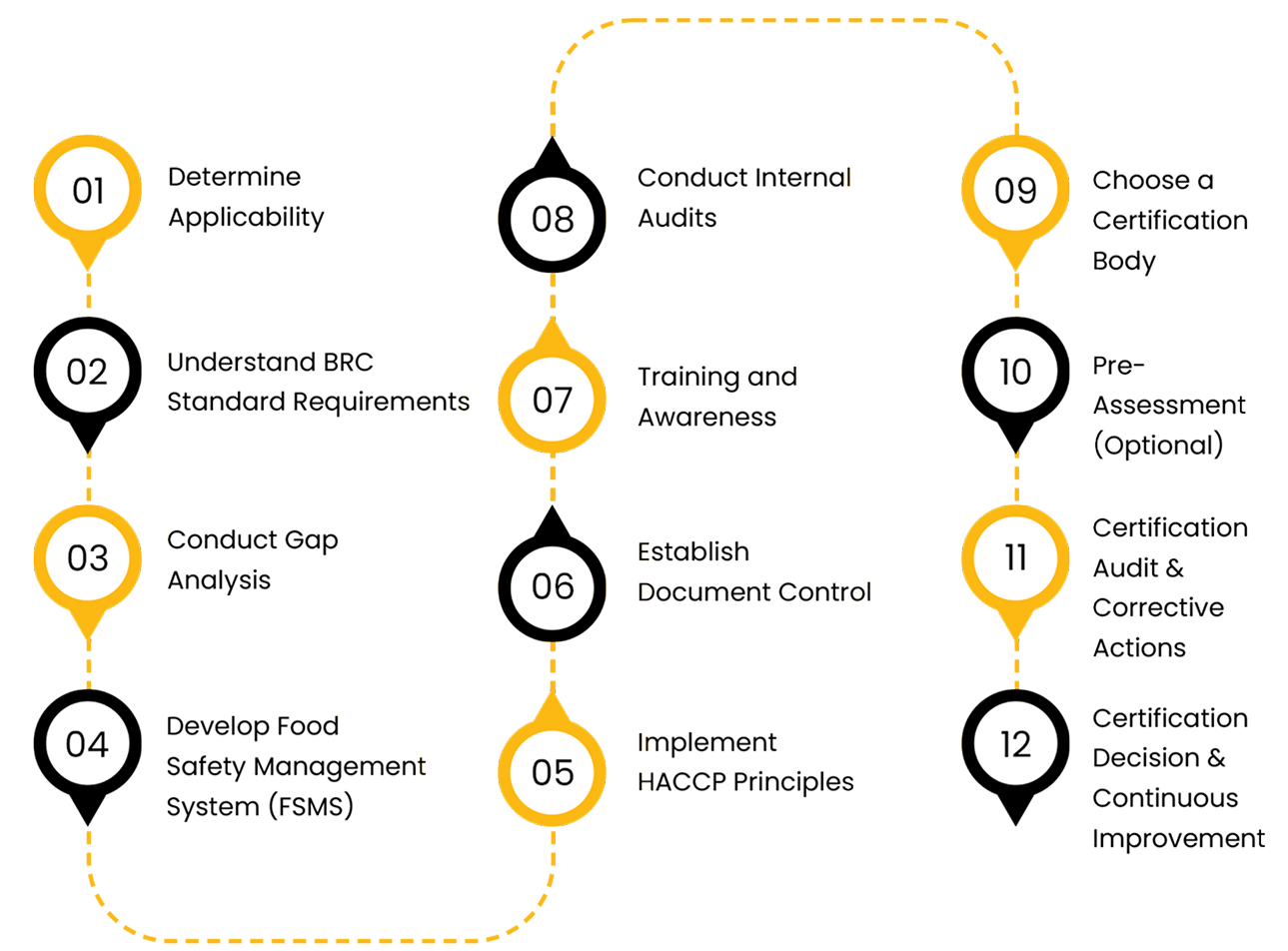Legal4sure is India’s most trusted BRC consultant. Since 2015, we have helped manufacturers, exporters, and packaging units create strong systems that pass BRC audit and satisfy the expectations of global buyers.
BRCGS Sectors: Food Safety, Packaging Materials, Storage and Distribution, Agents and Brokers, Consumer Products, Gluten-Free Certification Program, Ethical Trade and Responsible Sourcing
BRCGS Sectors: Food Safety, Packaging Materials, Storage and Distribution, Agents and Brokers, Consumer Products, Gluten-Free Certification Program, Ethical Trade and Responsible Sourcing
BRCGS Sectors: Food Safety, Packaging Materials, Storage and Distribution, Agents and Brokers, Consumer Products, Gluten-Free Certification Program, Ethical Trade and Responsible Sourcing
BRCGS Sectors: Food Safety, Packaging Materials, Storage and Distribution, Agents and Brokers, Consumer Products, Gluten-Free Certification Program, Ethical Trade and Responsible Sourcing
BRCGS Sectors: Food Safety, Packaging Materials, Storage and Distribution, Agents and Brokers, Consumer Products, Gluten-Free Certification Program, Ethical Trade and Responsible Sourcing
BRCGS Sectors: Food Safety, Packaging Materials, Storage and Distribution, Agents and Brokers, Consumer Products, Gluten-Free Certification Program, Ethical Trade and Responsible Sourcing
BRCGS Sectors: Food Safety, Packaging Materials, Storage and Distribution, Agents and Brokers, Consumer Products, Gluten-Free Certification Program, Ethical Trade and Responsible Sourcing
BRCGS Sectors: Food Safety, Packaging Materials, Storage and Distribution, Agents and Brokers, Consumer Products, Gluten-Free Certification Program, Ethical Trade and Responsible Sourcing
BRCGS Sectors: Food Safety, Packaging Materials, Storage and Distribution, Agents and Brokers, Consumer Products, Gluten-Free Certification Program, Ethical Trade and Responsible Sourcing
BRCGS Sectors: Food Safety, Packaging Materials, Storage and Distribution, Agents and Brokers, Consumer Products, Gluten-Free Certification Program, Ethical Trade and Responsible Sourcing
BRCGS Sectors: Food Safety, Packaging Materials, Storage and Distribution, Agents and Brokers, Consumer Products, Gluten-Free Certification Program, Ethical Trade and Responsible Sourcing
BRCGS Sectors: Food Safety, Packaging Materials, Storage and Distribution, Agents and Brokers, Consumer Products, Gluten-Free Certification Program, Ethical Trade and Responsible Sourcing
Legal4sure has helped over 2000+ factories on their BRC journey. We’ve partnered with more than 25 certifiers, developed systems for clients to be audit-ready, and assisted clients in achieving global buyer approval without sacrificing safety.
Our experts will help you complete your BRC audit certification within 30 days, providing full guidance and compliance support.
We give clear pricing. No hidden costs, no fake discounts, just honest rates you can trust.
98% BRC success rate. We train your team, find audit gaps, and develop and supply you with audit-ready documentation.
Our professionals find actual gaps and provide BRC consulting that ensures audit success.
BRC certification confirms that your products meet international safety and quality standards, reduces risks, and builds buyer confidence. Our experts will work with your factories to ensure the process meets the certification requirements and enhances your confidence in expanding your business into overseas markets.
BRC certification shows your commitment to global safety and quality. It is recognized worldwide, builds buyer trust, and opens international market opportunities for manufacturers and exporters.
Safety is the top priority for BRC, which uses worldwide standards for hygiene, materials, and quality. It helps businesses safeguard their goods, employees, and reputation in international markets.
From processing to packaging, warehousing to distribution, BRC supports every stage and scale, helping you meet global food safety standards that buyers trust.
2000+ individuals across food and packaging sectors have reached BRC success through our expert support, accurate documentation, and seamless audit preparation.
6,570 clients chose us when it mattered most, not just for advice, but real support all the way through.
98% success rate, because when we guide you, audits feel simple, not stressful
We’ve worked with over 25 top certifiers, so no matter who audits you, we know what they’ll expect.

Our team offers complete support to help you meet BRC certification requirements with confidence. From documentation, GMP protocols, and internal assessments to audit readiness and corrective action plans, every aspect is managed with precision. With over 2,000 BRC projects completed, our structured approach ensures timely certification without last-minute challenges.
From document checks to on-site walkthroughs, we handle every detail before your BRC audit. Our experts fix gaps, align practices with the standard, and prepare your team for a confident, stress-free audit day.
Our team reviews critical documents, including food safety plans, cleaning schedules, pest control reports, and traceability records. Each file is checked against BRC Audit standards to ensure full compliance before the audit.
We create effective corrective actions to fix BRC non-conformities, close audit gaps, and ensure your factory meets food safety expectations without delays or workflow interruptions.
To ensure that your workforce is prepared for audits and completely compliant with BRC standards, we provide clause-by-clause staff training and comprehensive documentation management in both the records and the production area.

To begin with BRC certification, we determine applicability and understand requirements. We perform a gap analysis, develop your Food Safety Management System, and implement HACCP. Then there is document control, staff training, and internal audits. After selecting a certification body, we support you with pre-assessments, the final audit, corrective actions, and ongoing improvement until you have achieved full compliance.


BRC certification demands strict compliance with food safety, hygiene, traceability, HACCP, supplier management, and robust quality documentation. At Legal4sure, we conduct clause-by-clause reviews, perform detailed on-site gap analysis, and train your staff to meet the highest global standards. Our end-to-end support ensures your factory is fully audit-ready and aligned with top buyer expectations.

This certification ensures food safety, quality, and compliance with global standards.
Before working with us, most factories ask the same things. These FAQs cover what Legal4sure does and how we support you.
BRC Certification is a global food safety standard that checks whether a company follows strict hygiene, quality control and traceability practices during production. It proves that your food products are safe, consistent and meet international compliance requirements.
It ensures your products meet global safety standards, builds buyer trust and opens access to retailers and export markets.
Yes. If you want buyers to trust your product instantly and reduce safety risks, BRC becomes a growth advantage rather than just a certificate.
Most large retailers, exporters and private-label buyers prefer or require BRC. It increases your chances of getting shortlisted faster.
No. You only need proper systems, hygiene and documentation. Even average setups qualify once gaps are fixed. Perfect facilities are not required.
Missing records. Even if your factory looks clean, incomplete documentation is the number one reason audits go wrong.
Many businesses complete the journey in 30–60 days if they act quickly on hygiene, training and paperwork. Speed depends on readiness, not size.
Small businesses benefit the most because BRC instantly puts them on the same trust level as bigger competitors. It opens doors that otherwise stay closed.
